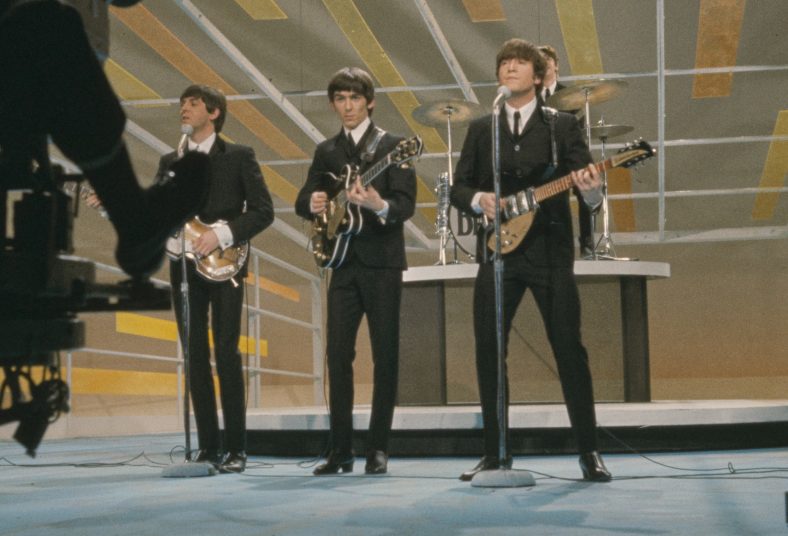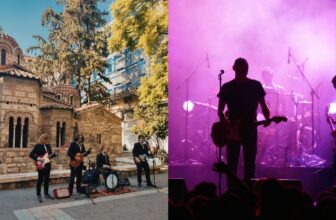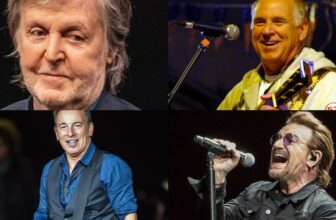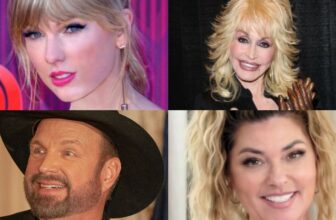What Genre are The Beatles?

The Beatles started their musical career as a Skiffle group. Skiffle is a combination of American Folk music, Jazz and the Blues played with several instruments. Most people classify the Beatles as classic rock or rock and roll but the truth is such a generic description hardly does the band justice as it is impossible to limit them to one genre.
The Beatles are the most successful music act of all time, surpassing the likes of KING, Elvis Presley and the “King of Pop ” Michael Jackson. The Fab Four, John Lennon, Paul McCartney, George Harrison, and Ringo Starr, refused to be limited to one genre and played music that went far beyond the definition of rock and roll and pop music.
Formed in 1960 in Liverpool, England, the band’s true rise to superstar status, dubbed as Beatlemania, began in earnest after appearing in New York City on the Ed Sullivan Show in 1964.
Throughout the remainder of the 1960s, the band ruled the charts with an array of hit singles and albums that comprised any and every conceivable genre. By the time they disbanded in 1970, critics were hard-pressed to define the genres that the Fab Four had introduced and played.
In just six years of recording, the Beatles had etched their music with many different styles and, more likely than not, confounded critics with their versatility. They were also heavily influenced by the music that was gaining popularity in that decade and often showed their gratitude to artists who had influenced them. With any discussion of musical genres, there comes an inescapable debate over the predominant category that a musical act might claim. The mop tops from Liverpool, the haircut popularized by the Beatles, are no exception.
Let’s take a look at how they confused critics and music fans while expanding their own horizons of musical prowess.
Origins
When the band formed out of the remnants of former groups, they were known as a raucous, edgy bar band. They honed their craft as live players in both their native Great Britain and Hamburg, Germany. Their live set included cover songs by Elvis, Carl Perkins, Little Richard, Chuck Berry and Jerry Lee Lewis, and they patterned their intimate bar shows after the rock ‘n’ roll artists that were popular in the United States at the time.
In addition to being part of the Merseybeat (pop/rock/skiffle) craze in the UK, they had a healthy appreciation for southern blues music and even the original American country music scene. It might be argued that this period was some of the hardest rock music the Beatles ever performed as soon enough they would transform into pop superstars.
Pop
In the wake of bass player Stuart Sutcliffe’s death and the replacement of drummer Pete Best with Ringo Starr, the band transitioned to a cleaner, more pop driven sound. Songs like I Want to Hold Your Hand, Love Me Do, From Me to You and She Loves You showcased a unique ability to craft catchy pop songs. At this point, the writing duo of Lennon/McCartney were entering into a period where everything they touched turned to gold for the band. Ballads such as Yesterday were interspersed with catchy pop hooks as heard on Eight Days a Week and Paperback Writer.
Psychedelic
On the Revolver album in 1966, the Beatles included the tabla, violins, maracas and the sitar to their already formidable arsenal. She Said, She Said and Tomorrow Never Knows were nods to far eastern Hindu mysticism. The band would continue exploring their psychedelic side on Sgt. Pepper’s Lonely Hearts Club Band, highlighted by the signature anthem Lucy in the Sky with Diamonds.
Final Stages
As the Beatles ended the 1960s, the creative spark was still alight, even with their relationships deteriorating. Albums such as Abbey Road and Let it Be put the final touches on the masterpiece that would be their legacy. Pure ballads like Something and Hey Jude were matched by the near perfect pop of Here Comes the Sun and the edgier Come Together and Polythene Pam. Even as they inched towards the end, the band outdid themselves.
Verdict
In short, the diversity and bravery of the greatest band in history defies categorization. They were able to master every type of genre they explored, both when it was a tribute to acts that came before, and also when they became the first band to attempt a new style. In their attempt to experiment with the existing genres, they ended up creating more.
I submit that the Beatles were and are a genre unto themselves, which is probably the highest compliment one could bestow on four gentlemen from tiny Liverpool, England. They sought inspiration from and experienced from any and every type of music they liked, however, the underlying inspiration for most of their music usually came from rock and roll and pop rock.





